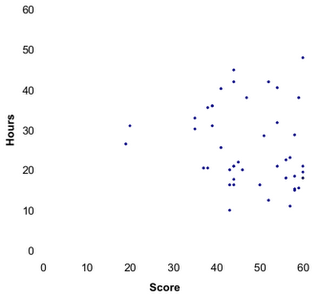 Programmer time vs. Quality Software Score. Totally uncorrelated!
Programmer time vs. Quality Software Score. Totally uncorrelated!Actually time sheets are worse than lame:
* they demotivate developers
* 10-15% loss of productivity is the minimum
* developers have to fake the time to fill them out properly
* erroneous data is used for reporting and management makes bad decisions
* customers are deceived
* they have nothing to do with quality code production
* they focus the whole organization on phony data instead of production
Nevertheless, this is not enough for many managers to give up time sheets. Just like the waterfall process, there is a psychological dependency so strong, it is as if they are on drugs.
However, the situation is even worse. Most management has completely wrong information in their head and thus continually make bad decisions. One of my students recently said to me, "You mean everything my manager told me is wrong!"
Yes, Jose, everything your manager ever told you is wrong:
* there is no correlation between developer time and software production
* there is no correlation between time spent and quality of code
* there is no relationship between "quality people" and code production
The only correlation between developer time and quality production code is the quality story points measured as a deliverable for a specific team.
Research over many years at Yale University provides some of the best data on this topic - see
Joel on Software
:
* for a single project worst/best coding times are 1/10
* across many projects worst/best coding times are 1/25
* the ratios above are the same for the worst and best Yale students
* the quality of the code produced is completely independent of time spent
For some reason, many development managers makes decisions without any data at all on this issue and their assumptions are completely out of reality.
Tom Poppendieck told me recently a competent manager actually did some research on his XP teams to see what number of hours per week produced the maximum amount of quality production code. After trying shorter weeks and overtime weeks, the best number of hours for teams to produce the most quality code was a 16 hour work week!
Trust me, you need to dump those lame time sheets and get focused on real software production before an Agile competitor puts you out of business!





